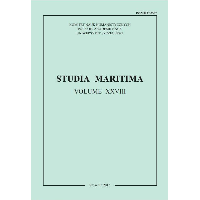Angielska Kompania Wschodnia w handlu bałtyckim
The Eastland Company in the Baltic Trade
Author(s): Andrzej GrothSubject(s): Economic history, Modern Age, International relations/trade, 15th Century, Financial Markets, Accounting - Business Administration
Published by: Wydawnictwo Naukowe Uniwersytetu Szczecińskiego
Keywords: English Baltic trade; the Eastland Company (North Sea Company/the Company of Merchants of the East); modern times;
Summary/Abstract: In the 15th century the economic relations between England and the Baltic countries became more intensified. The Baltic market was an important receiver of English cloth, and – at the same time – supplied the English shipyards with all the basic raw materials and semi-finished products. It is worth reminding that in the mid-16th century raw materials for the shipbuilding industry accounted for 1/2 to 3/4 of the Baltic exports to England, and textile products accounted for 80% of the value of the English imports to the Baltic countries. Most of these raw materials were delivered by the economy of the Polish-Lithuanian state, which up to the middle of the 17th century kept the dominant position in the commercial exchange between the Baltic region and the West of Europe. The key role in the Baltic trade with England was played by three ports: Elbląg (Elbing), Gdańsk (Danzig) and Królewiec (Königsberg). The prominent role of Elbląg resulted from the fact that the Eastland Company had its headquarters there. After the truce in Altmark was signed (1629) the Eastland Company practically lost its headquarters as its stay in Elbląg became pointless because of the restrictions imposed by the Polish Sejm (Parliament) on the trade with the ports under the Swedish rule. After the liquidation of the Eastland Company’s office in Elbląg the port’s participation in the Baltic trade was taken over by Gdańsk, Królewiec and partly by the Livonian ports. Since the 1680s the Baltic trade concentrated in the Swedish ports. In England the ports that participated in the Baltic trade were mainly the ones from the Eastern coast: London, Hull and Newcastle.
Journal: Studia Maritima
- Issue Year: 28/2015
- Issue No: 1
- Page Range: 5-18
- Page Count: 14
- Language: Polish

